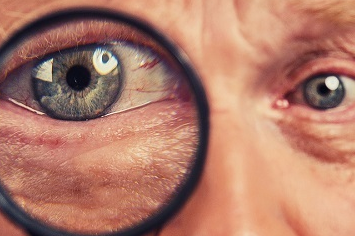Recommendations for Uveitis Patients Using Immunomodulatory Drugs

1. Patients who have received long-term high-dose cortisone and those using immunosuppressive drugs such as methotrexate, azathioprine, mycophenolate, cyclosporine, and especially biologic agents in the anti-TNF group are considered at risk of infection, as they were informed when these treatments were initiated. Although there is no definitive evidence that COVID-19 infection is more severe in patients taking these drugs, they are a group that should adhere strictly to the precautions of isolation and personal protection.
2. The use of low to medium doses of cyclosporine is believed to be relatively safer compared to the other drugs listed above. Although mycophenolate suppresses viral replication in vitro, it is not proven to exert this favorable effect in the human body. Tocilizumab (Actemra) is used for the treatment of severe COVID-19 cases, but offers no protection against infection. Because interferon is an antiviral drug, it seems reasonable for patients already taking this medication to continue their treatment.
3. International associations for uveitis do not currently recommend that patients discontinue these drugs. Treating a uveitis attack that is likely to occur with drug discontinuation and poses risk of severe vision loss will be even more difficult. However, discontinuing immunosuppressive therapy can be considered for patients who are in extended remission and whose dosage is already being tapered. With approval from the patient’s physician, it may be decided to extend drug administration intervals, reduce the dose, or discontinue the drug if possible.
4. If there is any suspicion of infection or high-risk contact, immunosuppressive drugs and biologic therapy should be discontinued immediately. Cortisone cannot be discontinued suddenly; in fact, during infection the body may need even more cortisone.
5. Since deterioration of complete blood count values and liver and kidney functions may put patients at increased risk for COVID-19 infection, it is important for all patients who are receiving treatment for uveitis, including interferon therapy, to continue regular complete blood count and liver and kidney testing (such as ALT, AST, GGT, serum creatinine) as usual, but performed at centers that are not COVID hospitals or at the nearest laboratory, and to consult their physicians for dose adjustment if results are abnormal. It is important that white blood cell (WBC) count is over 4000/μl in complete blood count.
6. Currently, only individuals with suspected infection are advised to wear a mask. However, we recommend that uveitis patients using immunosuppressive drugs protect themselves with a mask, especially when they visit a healthcare center/laboratory. Patients should not go out for any other reason and in-room quarantine should be practiced if possible.
7. These recommendations will be renewed as new information is received from domestic and foreign sources.




